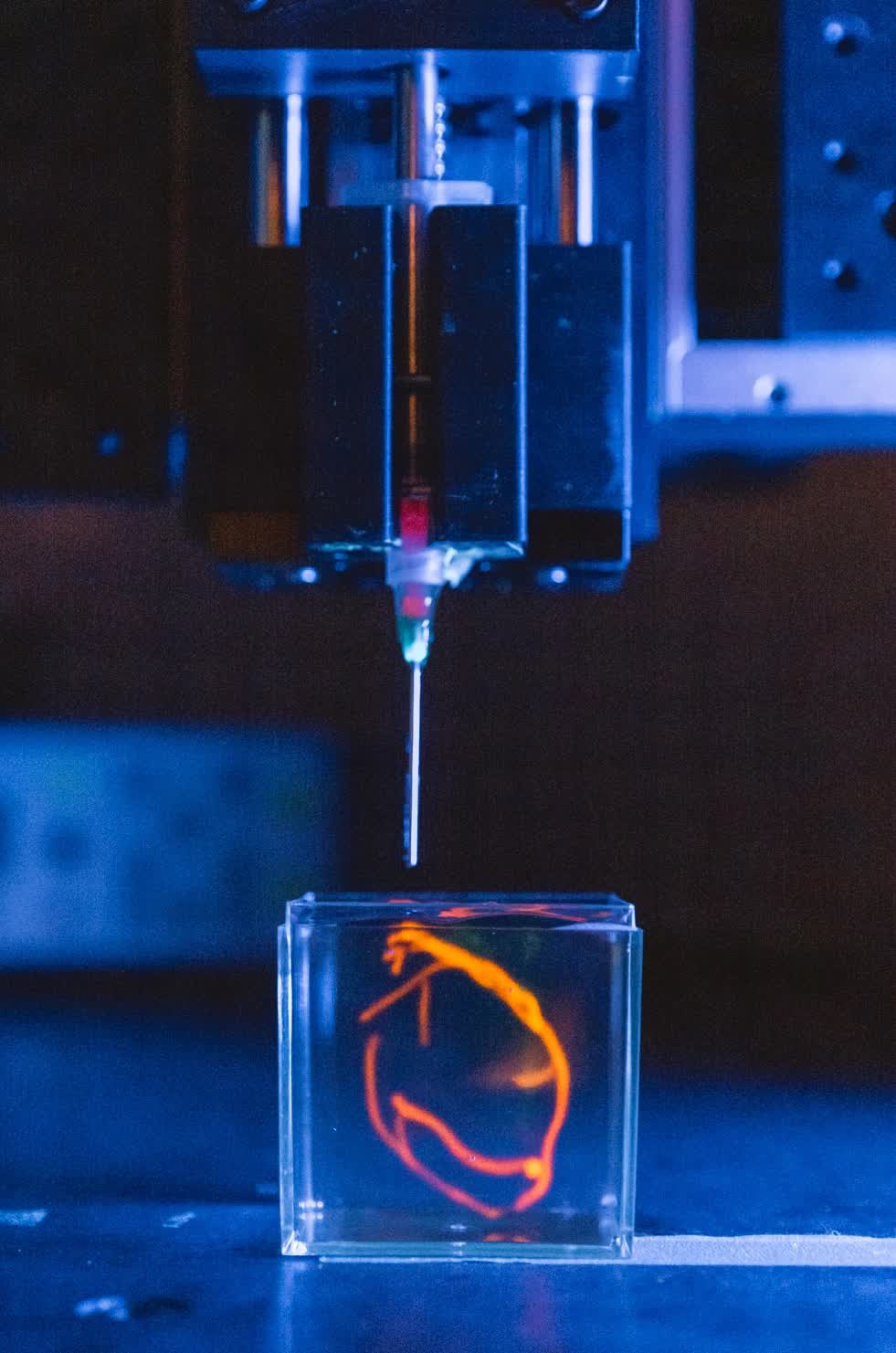In brief: Scientists at Stanford University are experimenting with advanced 3D printing techniques to grow human organs in the lab. The idea isn't new, but their technique is.
Up to this point, most lab-grown tissue is held in place and built around a temporary scaffold. This method works well enough for thin layers of cells but if you need something thicker – say a centimeter thick – then it becomes a real challenge to seed cells in the right spots and keep them alive.
Mark Skylar-Scott, an assistant professor of bio engineering in the schools of Engineering and Medicine at Stanford, and his team are approaching the problem from a different direction. Using 3D printing, they're able to build thick tissues with complex designs, layer by layer, and get the right types of cells in the right places.

Of course, 3D printing using living cells is a totally different ballgame compared to using a consumer 3D printer with plastic filament. Laying cells down one by one is out of the question, and even building with 1,000 cells a second is far too slow as you need several billion cells to create an organ.
Skylar-Scott and his team are instead using clumps of cells called organoids, which are created by putting modified stem cells in a centrifuge. The resulting paste-like material can be used to print many cells at once in a gelatinous 3D structure.
Building the organ is only one part of the equation. Once constructed, the cells must be told how to behave. This is done by engineering them to respond to a specific drug then exposing them to said chemical, which effectively turns them into the desired cell type.
So far, the team has succeeded in building a 2-inch-long tube about half a centimeter in diameter that can expand and contract to pump fluid through it. It's not much in the grand scheme of things but represents a solid foundation to eventually build something that could be implanted in a human body.
https://www.techspot.com/news/98547-stanford-scientists-using-modified-stem-cells-3d-print.html